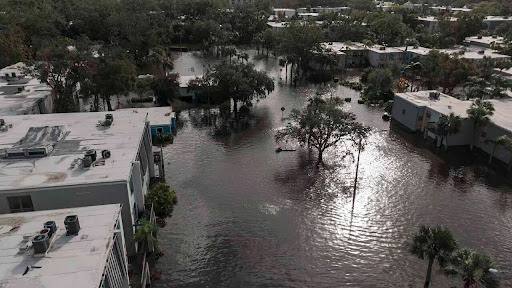On Feb. 8, 2022, the U.S Census Bureau and Bureau of Economy Analysis announced that the trade deficit in the United States had grown by $80.7 billion for the month of December. This means that our current trade deficit now stands at a record $859.1 billion. This is more than just numbers on a chart. America is losing. So are everyday people.
A trade deficit occurs when a nation imports more goods from foreign countries than it exports. Importing goods means that products are more affordable and available at a wide variety. Some products cannot be produced in the U.S efficiently such as foods that can only be grown in different climates, therefore we import. Free trade in and of itself is not evil. However, it must be fair, otherwise normal people suffer, and our country will become deindustrialized and weak.
A natural consequence of unfair trade is the mass outsourcing of jobs to other nations which leads to the hollowing out of the original location of those jobs. Take Michigan for example. According to the Trade Adjustment Assistance Program, the total number of manufacturing jobs lost as a result of the 1994 signing of the North American Free Trade Agreement is 168,403. This means that over a fifth of the Wolverine State’s manufacturing jobs were sent overseas.
Outsourcing correlates with the decline in job quality. According to a study by the Coalition for a Prosperous America, this disproportionately affects minority workers. This means low wages, fewer hours and little opportunity to enter the middle class. Are cheaper prices worth the opportunity for a better life?
Along with the drop off in quality of life, unregulated free trade directly harms consumers. When a chip plant in Malaysia shuts down over a COVID outbreak, new vehicles are in short supply as well as laptops needed by students for distance learning.
We also risk millions of lives when we rely on pharmaceuticals and intensive care equipment produced overseas. In the COVID-19 pandemic, a steady supply of ventilators, PPE and generic drugs must be available to our population so that we can better combat it. Instead, we rely on China, our adversary, to produce them. In this article (which may require a google translate browser extension) by state-run news agency Xinhua, they acknowledge “Announcing strategic control of medical products and banning exports to the U.S, the U.S would be caught in the ocean of the new coronavirus.”
Rather than take bold action and reshore production, our government has opted to bend the knee. Herein lies the problem: decades of irrational policy by elected officials in both parties. From President H.W Bush and Clinton’s disastrous NAFTA to the defunct Trans-Pacific Partnership, our leaders are wildly out of touch with the needs of American workers.
The time has long passed for outsiders to take over and renegotiate our trade policy. Reshore supply chains in the U.S where possible and instate more aggressive tariffs on foreign goods. Only then our society can begin to chip away at its deficit. This will result in better paying jobs, less income inequality and a stronger economy.










